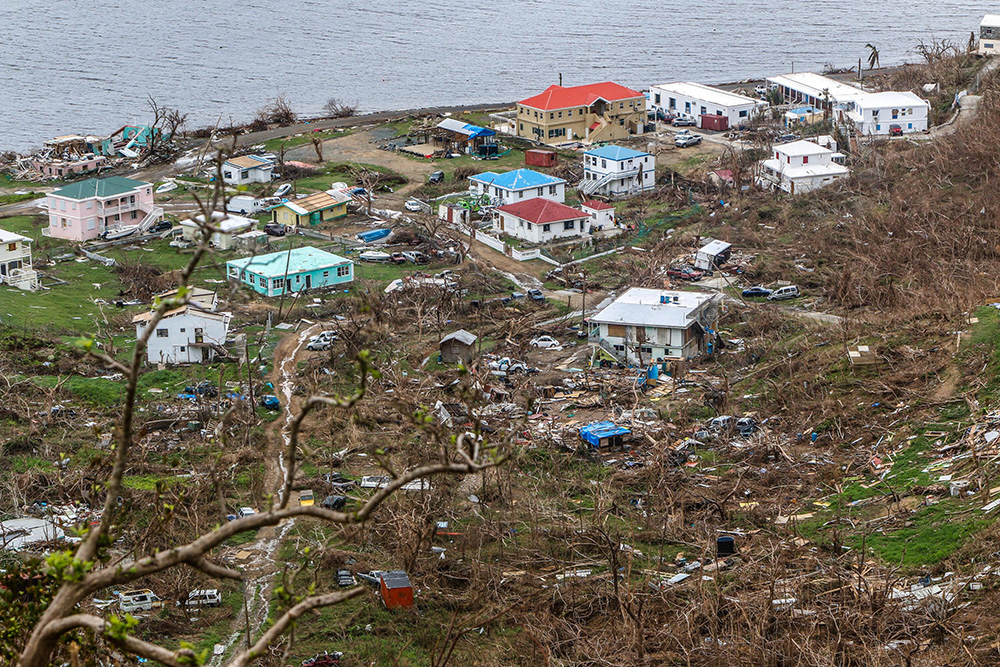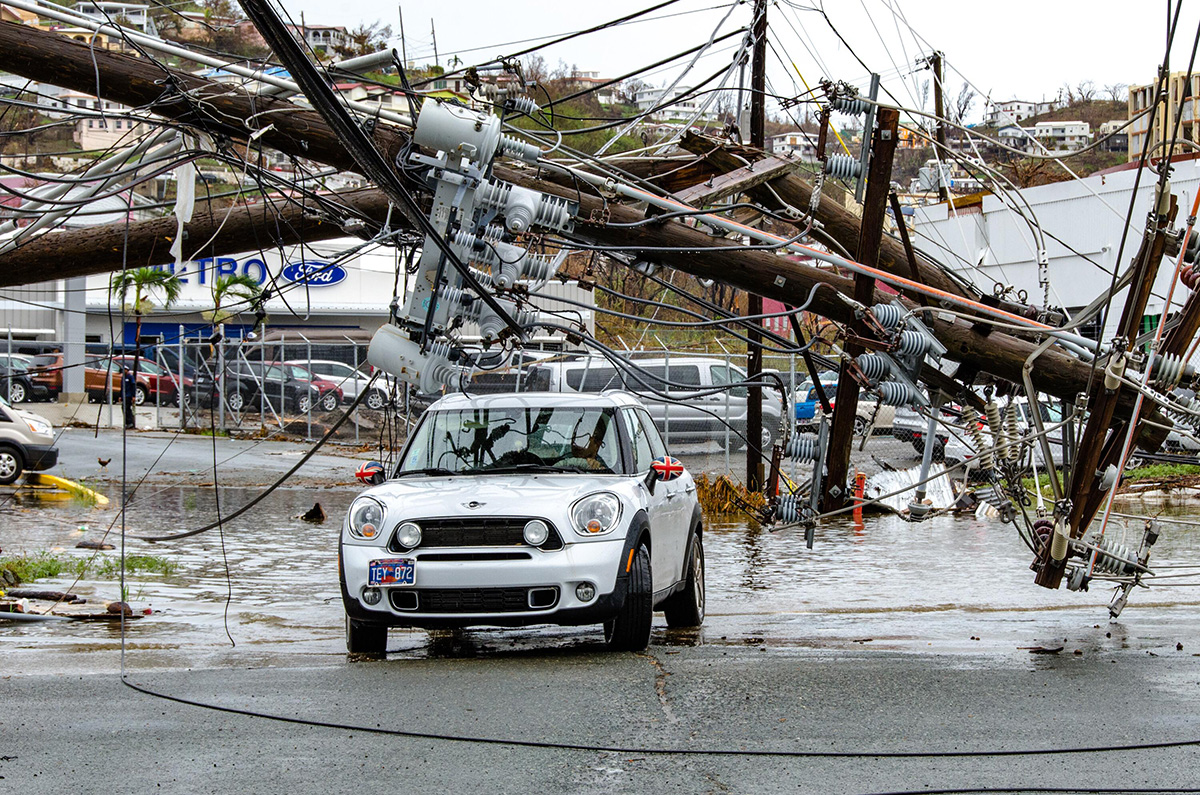
Coral Bay, St. John, USVI, after Hurricane Irma, September 25, 2017. Credit: U.S. Army photo by Spc. Charles Brock/FOUO (via FEMA Historic Disasters).
Communities in the U.S. Virgin Islands (USVI) experience flooding, storms, and other climate-driven hazards. Impacts from these events are felt differently across the territory due to both natural and social systems, and some communities feel these impacts disproportionately. Through our Community Vulnerability Assessment Portfolio, we are working with local partners to assess community climate vulnerability and risk in the USVI.
Why We Care
Communities on small islands with large coastal zones often rely heavily on their coastal environments. These areas are also more likely to face severe and persistent weather events, such as hurricanes that cause storm surge, coastal flooding, and damaging winds. The damage caused by acute storm events as well as more frequent flooding episodes from high tides and heavy rains make it harder for local communities to recover from and prepare for the impacts of climate change.
In the USVI, the islands of St. Croix, St. Thomas, and St. John are frequently impacted by tropical storms and hurricanes, the most recent being Hurricanes Irma and Maria in 2017, which caused catastrophic damage. These islands need vulnerability and risk indices that provide information at local resolutions to inform climate adaptation action and decision making since the territory is often excluded from national tools that screen for vulnerable populations.

St. Thomas, USVI, without power after Hurricane Irma, September 15, 2017. Credit: K.C. Wilsey/FEMA (via FEMA Historic Disasters).
What We Are Doing
Through our Vulnerability Assessment Portfolio, each year we identify one community or region and work with local partners and their stakeholders to assess community climate vulnerability (e.g., social vulnerability, flood hazard). Using our site selection criteria, we selected the USVI for the Portfolio’s first programmatic assessment. Our research approach includes the following steps:
-
- Partner engagement
- Indicator development
- Vulnerability and hazard assessment
- Risk assessment
- Product development and release
This project relies on partnerships with the Environmental Protection Agency – Region 2, the USVI Department of Planning and Natural Resources, the University of the Virgin Islands, and NOAA’s Climate Adaptation Partnerships (CAP) program (formally known as RISA) to build on recent social vulnerability research and contaminants concerns in the territory. We are working with partners to develop detailed project goals and outcomes during the project planning phase, but this assessment will more generally identify the following within the USVI:
-
- Social vulnerability, structural vulnerability, and structural exposure.
- Flood hazards of local importance (e.g., coastal flooding, stormwater flooding).
- Relative risk through intersection of vulnerability/exposure and hazard profiles.
- At-risk communities or community assets in relation to chosen flood hazards.
- Up to two additional place-based analysis types.
Benefits of Our Work
The U.S. Virgin Islands are home to some of our nation’s most disadvantaged and underserved populations in harm’s way. As climate change continues, it will become even more important to provide capacity to areas of high climate vulnerability, especially since USVI communities are also marine resource–dependent. Working with partners directly ensures that our results are locally tailored and relevant for effective, equitable planning. This work will provide information to better protect, advance, and manage climate change impacts within the USVI.
 Official websites use .gov
A .gov website belongs to an official government organization in the United States.
Official websites use .gov
A .gov website belongs to an official government organization in the United States. Secure .gov websites use HTTPS
A lock or https:// means you’ve safely connected to the .gov website. Share sensitive information only on official, secure websites.
Secure .gov websites use HTTPS
A lock or https:// means you’ve safely connected to the .gov website. Share sensitive information only on official, secure websites.